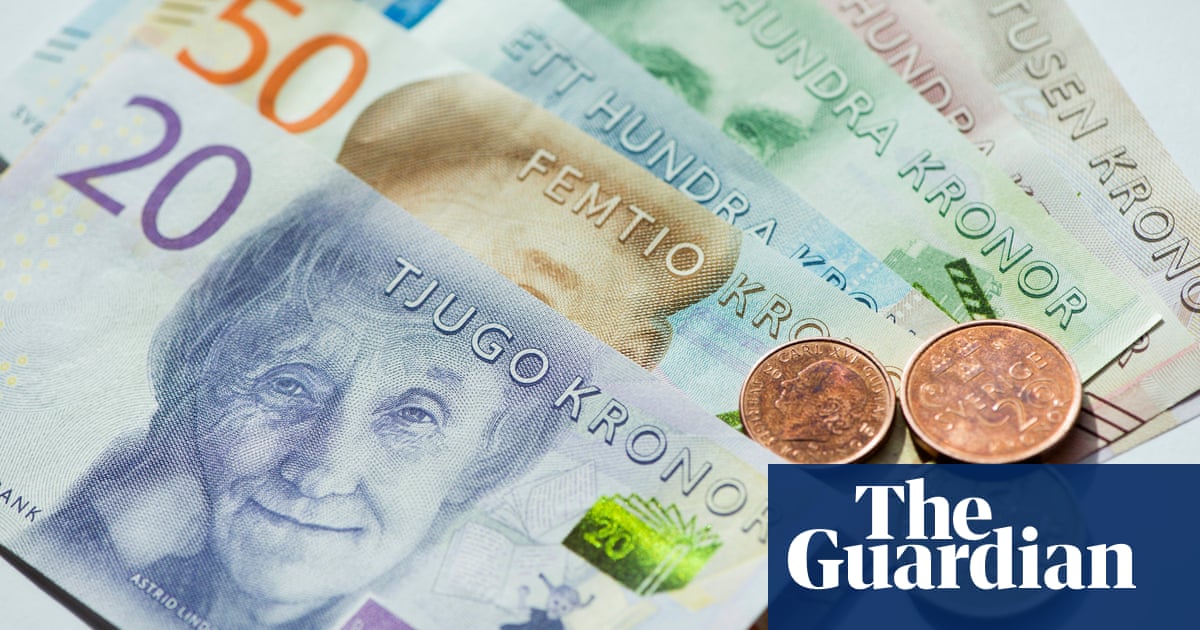- cross-posted to:
- [email protected]
- [email protected]
- [email protected]
- cross-posted to:
- [email protected]
- [email protected]
- [email protected]
cross-posted from: https://feddit.org/post/4262252
A combination of good high-speed internet coverage, high digital literacy rates, large rural populations and fast-growing fintech industries had put the Nordic neighbours on a fast track to a future without cash.
[…]
But Russia’s invasion of Ukraine in 2022 and a subsequent rise in cross-border hybrid warfare and cyber-attacks blamed on pro-Russia groups have prompted a rethink.
[…]
The Swedish government has since completely overhauled its defence and preparedness strategy, joining Nato, starting a new form of national service and reactivating its psychological defence agency to combat disinformation from Russia and other adversaries. Norway has tightened controls on its previously porous border with Russia.
[…]
[Norway’s] justice and public security ministry said it “recommends everyone keep some cash on hand due to the vulnerabilities of digital payment solutions to cyber-attacks”. It said the government took preparedness seriously “given the increasing global instability with war, digital threats, and climate change. As a result, they’ve ensured that the right to pay with cash is strengthened”.
[…]
As much as I hate using cash, I understand that the credit card companies charge ridiculous fees to businesses and also that people with very low income don’t always have access to digital forms of payment. Maybe Sweden does better with equipping their entire society with digital tools, but in the US I don’t think we are ready for a fully digital payment society.
I don’t like using cashless anything because I know part of the cost is my privacy. Having said that, convenience is a powerful draw and cash can be a pain, especially when you have to find a spot for small coins.
nobody should be including apple or google spy apps in their payment processing
there haven’t been card fees for end users in Sweden for many years. handling cash is a lot more expensive since you need somewhere secure to keep change, you loose time at the till handling the money, and you need to pay for someone to come pick it up. the time gained from just having the customers pay with card means businesses gladly swallow the fees.
and yes, i’m always surprised when going abroad how much more analog everything is. the nordics and Baltic’s are generally at about the same level (with Estonia way ahead), but the rest of the continent feels like it’s 10 years behind. I was once asked if I really wanted to pay with card in a corner shop in Leipzig, since the card fee was €10.
not that i’m a fan of the digitalisation, it makes marginalised groups even more marginalised. i see my elderly relatives struggling with it often.
The end user didn’t pay directly, but the companies very much pay for this privilege
Which is why Swish, and in Norway, Vipps has been a big thing. So the banks can get that revenue for themselves instead of sharing with visa / Mastercard
It’s extremely disappointing to me (admittedly in the US) that Covid seems to have obliterated any chance for a large-scale investigation on payment processors’ stranglehold on our financial systems. The fees that Visa/Mastercard/etc. charge, especially for tiny merchants with insanely low transaction numbers, are criminal.
In Norway and Sweden many places just doesn’t take cash. Probably been around 2 years since I last used cash
Anything from kids bakesales takes digital payment
Here, many stores don’t accept cash so I assume accepting credit cards is cheaper and easier than handing cash.
deleted by creator
We have cash?
o_O
Haven’t used it for years.
It’s still legal tender so they have to accept it. They don’t like it, but they do. Last time I visited Norway I held up the line at the grocery store trying to buy candy with cash that had been gifted to me. I’m not sure the cashier knew what to do with it.
Shops in Sweden very often state that they don’t accept cash - and it’s perfectly legal for them to make that choice.
legal tender
As far as I understood it in the last 20 years, it is only legal tender for debt facing the goverment. No private business has to accept cash. They do not have to accept cards either. If they wish, they could demand payments only in acorns or bottle caps if they wanted to. Only govermental Institutes (eg. for taxes, fines, etc.) have to always accept cash so you can always free yourself from outstanding debits without needing a bank account as bank wiring or credit cards are a private 3rd party business that can not be guaranteed for every citizen (as banks can arbitrary decline service to people).
They do not have to accept it
I took a bus in Malmö over ten years ago (on the seaside to the railway station), they didn’t accept cash or card, only some mobile payment. Got a free ride.
Noone uses cash in Sweden, except for maybe drug dealers and super old people(and the occasional tourist). Most businesses dont even accept cash anymore.
It isnt just the convenience of not having to carry cash, it is also much safer. Much lower risk of getting robbed, for both individuals and businesses.
Yeees! Great! I like cash.
In America, you can’t open a bank account without an address. That means that the homeless population can’t open a bank account (not easily, anyway), and therefore can’t get a debit card.
Cashless is a nice idea, but it is extremely prohibitive against the most vulnerable people (which, sadly, might be part of the point).
It’s largely a non-issue in the Nordic countries as you basically have to voluntarily opt out of any government aid programs to be homeless, which understandably most don’t. This goes for most, if not all, vulnerable groups; most of the help is decently robust, at least enough to keep you fed and in housing. So I don’t think it’s a very large portion of the consideration, almost everything is paid via mobile pay, checks (any, not just from working) are all done digitally as well.
Ah yes, socialist practices… look how evil it is… taking care of others.
Inhuman communist savages the lot of them!
Meanwhile in Denmark: FULL STEAM AHEAD! Next stop on the digitalisation train, all of your identification papers!
and the penny drops
Money changers in shambles.
Sweden is otherwise cool with having a zero privacy payment system? I’m a little Suprised this made it that far even there. When I see a business that says it does not accept cash, I stay away even if I wasn’t planning to use cash anyway.
Funny way to say people dont like the idea of having all financial privacy ripped away from them.
This would suck so bad. My debit card’s chip went bad and the bank can’t reissue me a new one until it expires. I’ve been using cash as a fallback when I don’t want to do the ‘3 chip failure timeout then swipe’ dance just to purchase some soda.
The risk of the payment system getting shut down and people being unable to make payments for a while is real. And it is one good reason to be less reliant on digital payments.
But there is also the risk of bad actors, which could also be e.g. Russia, getting access to decades of payment history through a hack, if everything is digital. Having that data for every citizen of a country could enable efficient profiling of people in the country using big data analysis technologies.
The kind of thing you could find out with the transaction data is who are working in the military or security police, who is sympathetic to Russia and at the same time vulnerable to work with foreign governments, and potential blackmailing material relating to people in these or other groups. I’m sure the analysts working for the bad actor can come up with even more useful things to look for in the data.
There are of course a lot of other data sources that bad actors are interested in and that are easier to hack, but the financial history seems more comprehensive source of information than most other ones.
Yup, I keep a fair amount of cash on hand at home in case there’s some kind of mass outage so I can at least get essentials to last until power is restored. Oh, and I also use it for my kids’ allowance and for baby sitters, but I have larger denominations as well in case of emergencies.
That said, I have been considering using cash more often because I really don’t like all the tracking that already goes on, and I certainly don’t want the government having that data as well. But cash is super inconvenient because of small change, so I haven’t made the switch yet. If we could get rid of the small change and just round prices a bit, I would seriously consider going back to cash.
Just a note, high denominations are not great during emergencies, unless you mean big purchase emergencies. Buying food and gas with high denomination bills may end up in seller not accepting the bill because they have no change. Or happily accepting that bill despite having no change.
For small change, you could take the jar to your bank and make a cash deposit (and see the cashier die inside). In some branches they have machines for counting change.
unless you mean big purchase emergencies
Yup, exactly that. I’m in the US and keep a few hundred in $100 bills, with the rest being smaller denominations. I usually have about $1k in cash in a safe, with lots of small bills. So that should be plenty to handle a couple weeks worth of groceries, or a couple large purchases (e.g. paying someone cash to move a tree or something).










